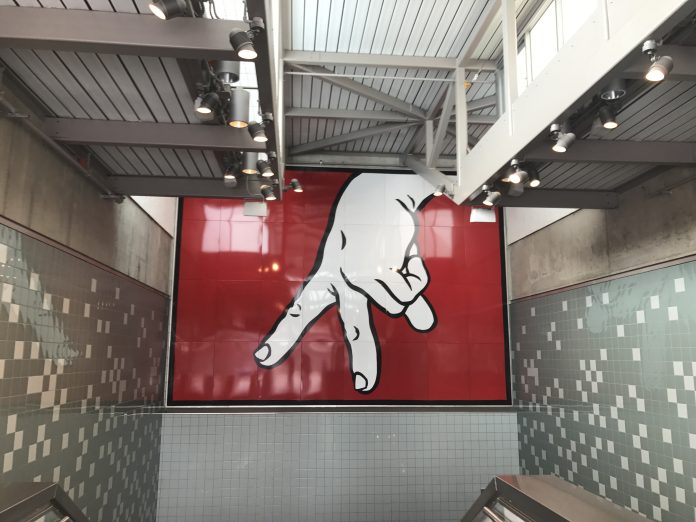Residents of the Puget Sound can breathe a momentary sigh of relief, it appears. Despite historic draconian cuts on discretionary programs proposed by the Trump administration, Congress appears poised to approve a federal budget that invests in all Americans–whether red, blue, purple, big city, small town, or rural dweller. The Environmental Protection Agency, for instance, is only expected to take a 1% cut under the deal, leaving intact core programs like water quality and Superfund–and the entire staffing of the agency. Locally, that means continued funding to clean up waterbodies and ecosystems like Puget Sound. The budget will fund government operations and programs through the end of the fiscal year, which ends on September 30th.
Yesterday, transit policy guru Yonah Freemark broke the good news on the transit funding side of things:
In the federal budget agreement: New Start funds approved for DC Purple Line; Minneapolis Southwest light rail; Seattle Lynnwood Link. pic.twitter.com/lLc2QoAXH2
— Yonah Freemark (@yfreemark) May 2, 2017
Yes, you read that right: the Lynnwood Link extension, Center City Connector streetcar, and Swift BRT II line all will get funding from the Federal Transit Administration in this year’s budget, if Congress proceeds as planned. In fact, spending levels in the Department of Transportation will rise year-over-year by $681 million to a total of $19.3 billion. Here are line-item highlights from the proposed budget:
- “The Federal Railroad Administration is funded at $1.85 billion, an increase of $173 million over the fiscal year 2016 enacted level.”
- “Rail safety and research programs are funded at $258 million, $20 million above the fiscal year 2016 enacted level.”
- “The bill provides $1.5 billion for Amtrak. The bill adopts the new Amtrak funding structure as authorized, providing $328 million for Amtrak’s Northeast Corridor and $1.2 billion to support the National Network. The bill requires overtime limits for Amtrak employees to reduce unnecessary costs.”
- “Provides no funding for high-speed rail.”
- “The bill provides $12.4 billion in total budgetary resources for the Federal Transit Administration (FTA)–$657 million above the fiscal year 2016 enacted level.”
- “Within this amount, $2.4 billion is provided for Capital Investment Grants, including $1.5 billion for all current ‘Full Funding Grant Agreement’ (FFGA) transit projects.”
- “Core capacity projects receive $333 million in the bill, and $408 million is included to fund all state and local ‘Small Starts’ projects that will begin in fiscal year 2017. These programs provide competitive grant funding for major transit capital investments–including rapid rail, light rail, bus rapid transit, and commuter rail–that are planned and operated by local communities.”
- “The legislation funds National Infrastructure Investment grants (also known as TIGER grants) at $500 million, the same as the fiscal year 2016 enacted level….These grants are awarded by the Department of Transportation to states and local communities for infrastructure construction and improvements.”
Unknowns in the transit budget, however, include Madison RapidRide and the Tacoma Link extension. But the budget deal will provide important funding for other local priorities, such as public and low-income housing, homelessness assistance, and community development grants:
- “The legislation includes a net total of $38.8 billion for the Department of Housing and Urban Development, a $513 million increase above the fiscal year 2016 enacted level.”
- “Section 8 and Public Housing: Included in the bill is $27.5 billion for Public and Indian Housing. This is an increase of $623 million above the fiscal year 2016 enacted level….This level will continue assistance to 2.2 million low-income households.”
- “Community Planning and Development: The bill contains $6.8 billion for Community Planning and Development programs–$152 million above the fiscal year 2016 enacted level.”
- “Community Development Block Grants are funded at $3 billion–the same as the fiscal year 2016 level. The HOME Investment Partnerships Program is funded at $950 million–the same as the current year. Grants for Homeless Assistance are funded at $2.4 billion, an increase of $133 million over current level–which will not only renew high performing housing programs, but further the goal of ending homelessness.”
The budget also makes important increases to the National Institutes of Health, Pell Grants for college students, National Science Foundation, and National Endowment for the Arts. PBS, NPR, and the National Labor Relations Board even are funded at last year’s levels.
In addition to all this, Trump’s vindictive policy to punish cities that don’t cart off undocumented immigrants (municipalities known colloquially as “sanctuary cities”) was dealt a blow last week by a federal judge in San Francisco. It appears that Trump will not be able to strip federal funding from cities that don’t go along with his attacks on families as the judge declared the policy facially unconstitutional. In sum, cities and counties like Seattle and King County should be able to retain most if not all of the federal money and programs owed to them by the federal government–for now, anyway.
Of course, the budget still must receive approval from both houses of Congress and must be signed into law by Trump–who has stated as recently as today that America could use a good old government shutdown. The future of fiscal budgets under the Trump administration and Republican-controlled Congress remains uncertain, but hopefully this congressional budget is a sign–despite earlier posturing–federal budgets won’t cut transit and other important programs as deeply as expected.
The featured image is a Lynnwood Station rendering by Sound Transit.
Stephen is a professional urban planner in Puget Sound with a passion for sustainable, livable, and diverse cities. He is especially interested in how policies, regulations, and programs can promote positive outcomes for communities. With stints in great cities like Bellingham and Cork, Stephen currently lives in Seattle. He primarily covers land use and transportation issues and has been with The Urbanist since 2014.


